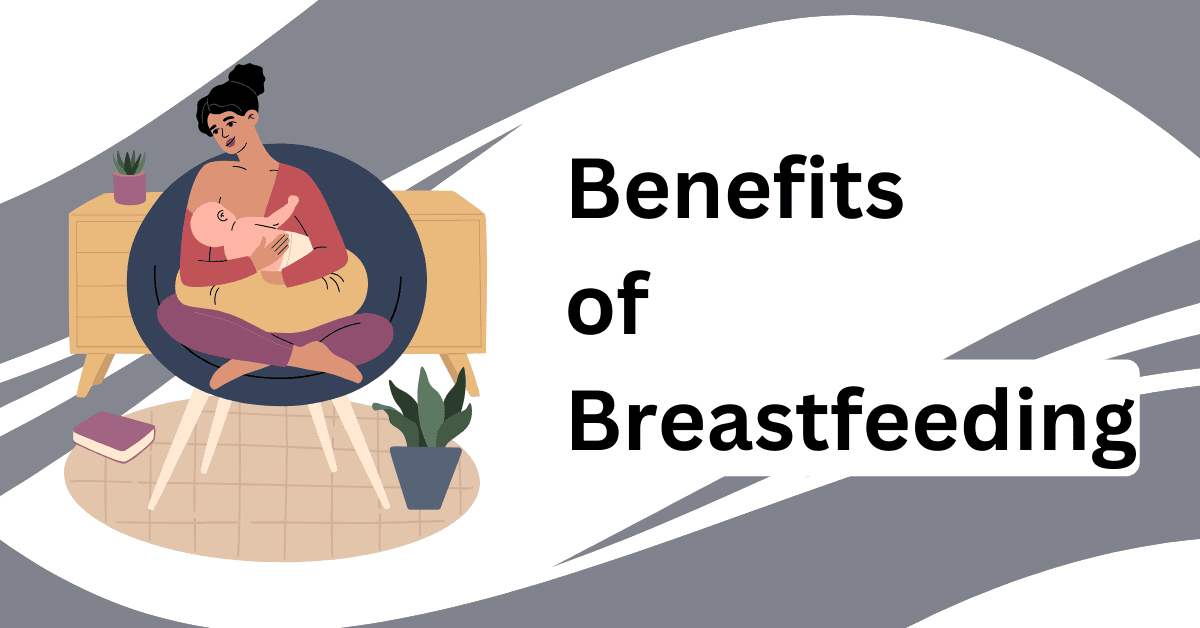Breastfeeding is a natural and essential process that provides numerous benefits for both mothers and their babies. From nutritional advantages to emotional bonding, breastfeeding plays a crucial role in the health and well-being of both mother and child. In this blog, we will explore the comprehensive benefits of breastfeeding, emphasizing why it is highly recommended by health professionals worldwide.
1. Nutritional Superiority
Breast milk is the gold standard of infant nutrition. It contains the perfect balance of nutrients essential for a baby’s development. Rich in antibodies, breast milk helps protect infants from various infections and diseases. The composition of breast milk adjusts over time to meet the changing needs of the growing baby, providing the ideal nourishment at every stage.
2. Enhanced Immune System
One of the most significant benefits of breastfeeding is the boost it gives to the baby’s immune system. Breast milk contains vital antibodies and white blood cells that help fight off viruses and bacteria. This immune protection extends beyond infancy, reducing the likelihood of allergies, asthma, and other chronic conditions later in life.
3. Cognitive Development
Studies have shown that breastfeeding is linked to higher IQ scores in later childhood. The fatty acids in breast milk, particularly DHA (docosahexaenoic acid), are crucial for brain development. Breastfeeding promotes better cognitive and sensory development, contributing to improved learning and memory.
4. Emotional Bonding
Breastfeeding fosters a strong emotional bond between mother and baby. The physical closeness, skin-to-skin contact, and eye contact during breastfeeding help build a secure attachment. This bonding is essential for the baby’s emotional and psychological development, providing a sense of security and comfort.
5. Health Benefits for Mothers
Breastfeeding is not only beneficial for babies but also for mothers. It helps in the postpartum recovery process by stimulating the release of oxytocin, which aids in uterine contraction and reduces postpartum bleeding. Breastfeeding also burns extra calories, helping mothers return to their pre-pregnancy weight more quickly. Additionally, long-term breastfeeding is associated with a lower risk of breast and ovarian cancers, type 2 diabetes, and osteoporosis.
6. Economic and Environmental Advantages
Breastfeeding is cost-effective and environmentally friendly. It eliminates the need for formula, bottles, and other feeding supplies, saving families money. Additionally, it reduces waste and the environmental impact associated with the production and disposal of formula packaging.
7. Convenience and Availability
Breast milk is always available at the right temperature, eliminating the need for preparation. This convenience is especially beneficial during nighttime feedings and when traveling. Breastfeeding can also provide comfort and pain relief for babies who are sick or teething.
8. Long-Term Health Benefits
The benefits of breastfeeding extend well beyond infancy. Breastfed babies are less likely to develop chronic conditions such as obesity, type 1 and type 2 diabetes, and cardiovascular diseases. The protective effects of breastfeeding contribute to a healthier population and reduce healthcare costs over time.
Conclusion
Breastfeeding offers unparalleled benefits for both mother and baby. It provides optimal nutrition, boosts the immune system, supports cognitive and emotional development, and offers significant health advantages for mothers. Moreover, it is cost-effective and environmentally friendly. By choosing to breastfeed, mothers can give their babies the best possible start in life, laying a strong foundation for their future health and well-being.

